First-of-its-kind project, ‘If You Hear What I Heard,’ films members of the third generation post-World War II who give testimonies in an ongoing docu-series
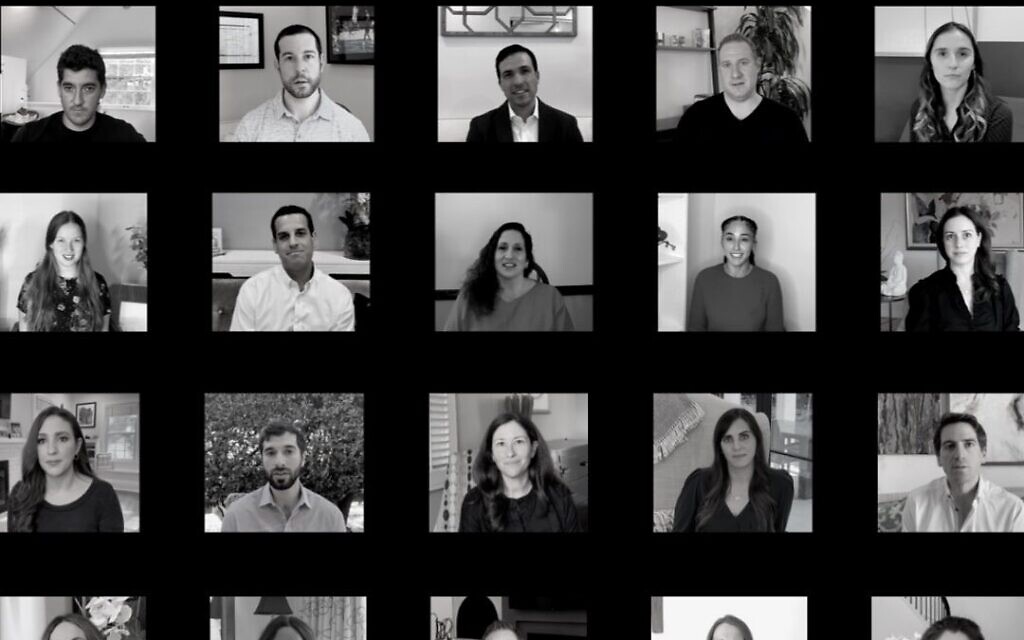
When Carolyn Siegel was eight years old, her grandfather told her “it will be the job of your generation to make sure the world does not forget what happened during the Holocaust.”
Early in the Nazi genocide, Siegel’s grandfather, Moses Locker, joined the Polish army to avoid persecution. Although Locker survived the war, all of his immediate family members were murdered. His parents were shot at a mass grave close to their home, while his sisters and five-year-old nephew were sent to the death camp Belzec.
Thirty years after learning about the fate of her grandfather’s family, Siegel is keeping her promise to him through “If You Heard What I Heard,” a growing online collection of docu-series-style interviews with grandchildren of survivors, often referred to as “3Gs.”
Among her goals for the independent project, Siegel wants the interviews to be “relatable, as if you were having coffee with someone,” she told The Times of Israel. One of the interviews features Siegel herself, who shared her grandfather’s account.
“This was the first time I sat down and chronologically mapped out my grandfather’s journey, because I’d mostly heard about it in fragments throughout my life,” said Siegel. She is not aware of other projects dedicated to interviewing “3Gs” about the Holocaust’s impact on their families.
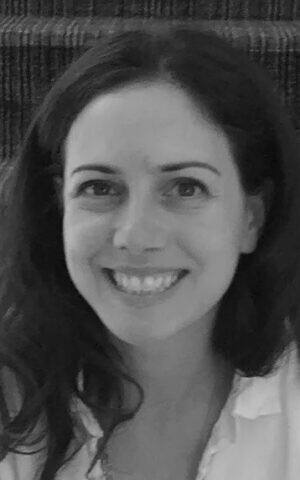
“We’re leveraging all the digital tools available today to create awareness about the Holocaust,” says Siegel, a marketing executive in Los Angeles.
In addition to the website, the project has an Instagram, YouTube channel, and Facebook page to attract younger generations. All of the interviews are filmed on smartphones, with Siegel’s off-camera questions framing the conversation. For teachers, the project has a dedicated resource page with exercises and teaching aids.
“In these interviews, we are adding details and context to what survivors told their families, including how Holocaust legacies affected them. We hope those watching will want to learn more and view a survivor’s original testimony, or visit a Holocaust museum” said Siegel.
One 3G account featured is that of Leibel Mangel, whose grandfather, Rabbi Nissen Mangel, was taken to the death camp Auschwitz-Birkenau as a 10-year-old. The interview conveys not only the horrors that Mangel went through, but how the survivor went on to build a new family and become a community leader.
During the “selection” upon arrival at Birkenau, Nissen Mangel told SS “physician” Josef Mengele that he was 17. Mengele laughed at the absurd lie, but let the boy go with his father to become a forced laborer — as opposed to sending him to the “showers” with children and the elderly.
“It’s because of that decision to lie to Mengele that I am sitting here today and that our entire family exists,” said Leibel Mangel in his interview. “And that was just the beginning, there’s story after story of my grandfather stepping up to the plate.”
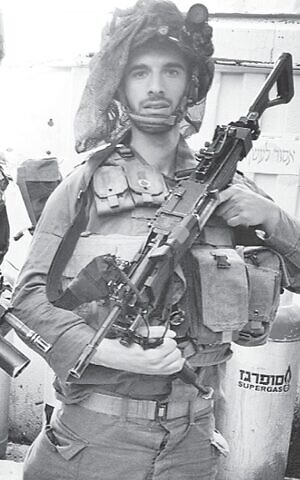
At one point, Nissen Mangel overheard Mengele conducting experiments on children in a barracks. The boy confronted the SS doctor, shouting, “Experiments are for monkeys, not for children!” Mengele drew his pistol in front of Mangel but then walked out of the barracks.
After the Holocaust, Mangel became a respected Orthodox rabbi. More recently, his grandson Leibel served in the IDF to honor his grandfather and relatives lost in the Holocaust.
“We always have the ability to do good in the world,” said Leibel Mangel in his interview with Siegel. “And there are moments in your life when you will need to step up and do the right thing.”
‘To live with new purpose’
A Los Angeles native, Siegel started “If You Heard What I Heard” after a synagogue near her home was vandalized with antisemitic graffiti in 2020. It was the fifth such act of vandalism in LA that year, and Siegel decided it was time to keep that promise made to her late grandfather.
“With the resurgence of antisemitism in our country, we hope that people of all backgrounds will come to the website and listen to the interviews,” said Siegel, who has been inundated with 3Gs offering to be interviewed.
“The hope is that we can keep the stories of the Holocaust, and how our grandparents survived, as part of our recent memory, and not our distant memory,” said Siegel.
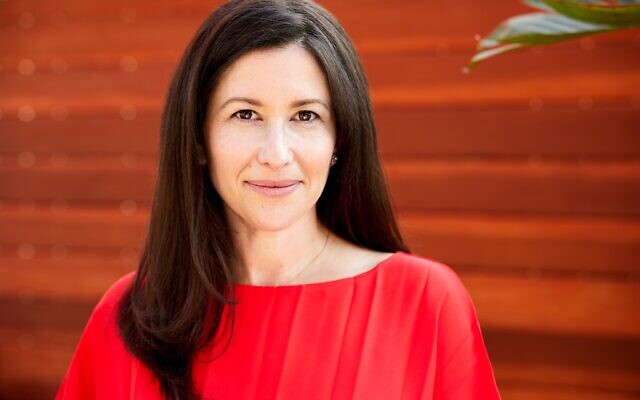
Some of Siegel’s audience for “If You Heard What I Heard” have been the survivors whose stories are being told. Of 30 interviews conducted so far, eight Holocaust survivor grandparents are still alive. Emily Kane Miller, who shares the story of her grandmother, Yetta Kane, relayed that her grandmother “felt a sense of relief” after watching Miller’s interview.
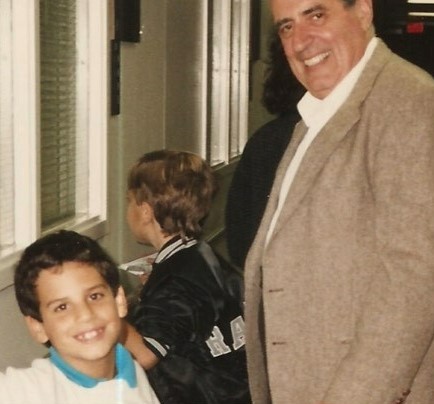
“I want survivors to be proud of what we are doing and to know their experiences are being heard by a new generation,” said Siegel of the feedback from Miller and her grandmother.
Another of Siegel’s “3G” interviewees, Aaron Aftergood, is the son of a former interviewer for the Los Angeles-based USC Shoah Foundation, Sara Aftergood. Now an attorney, Aftergood grew up listening to his mother’s accounts of her filmed interviews with survivors.
“She came home with incredible stories,” Aftergood told The Times of Israel. “I believe in this concept of allowing second and third generation people not necessarily to tell the original story, but to share the impact it had on them.”
Aftergood’s grandfather — Edgar Aftergood — survived the Warsaw Ghetto because his aunt managed the children’s hospital there.
“He and his parents had a little home in [the hospital] and he saw firsthand corpses leaving the hospital on a daily basis,” said Aftergood, adding that his grandfather also participated in so-called “spiritual resistance” by performing as a solo violinist in the ghetto orchestra.
In 1943, Edgar Aftergood and his father escaped the ghetto while assigned to a work detail. They spent months hiding on the outskirts of Warsaw before heading west to France.
“I think there is value in viewers receiving the information, but also for the participants in this project,” said Aftergood. “It was great to be asked about the subject and what I knew, because my grandfather told me so much directly over the years.”
According to Siegel, her filmed encounters with “3Gs” like Aftergood “are a reminder to live life with resilience and strength, that we can get through anything, because they did, and they built incredible lives afterwards,” she said.
“There’s a sense of weight that comes with being the grandchild of Holocaust survivors, to know that I’m part of the last generation that will ever hear those stories firsthand, so it is my responsibility to carry it forward,” said Siegel.
As reported by The Times of Israel
